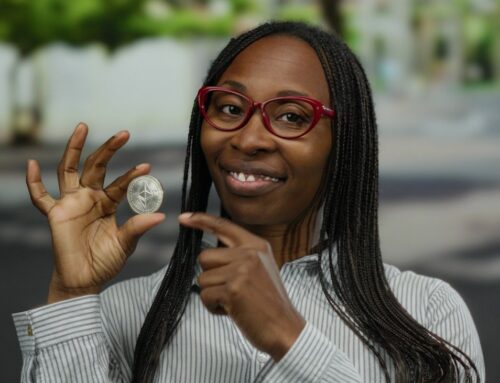‘At Meta I found myself wrestling my deputy in an MMA gym’: Nick Clegg on the culture shoc
August 24, 2025
I’m not a creature of Silicon Valley. I didn’t study computer science. I’ve never written a line of code. I haven’t spent my career immersed in the processes, debates and science of technological progress. I came to Meta, Facebook as it then was, in 2018 as an emigre from the world of British and European politics. I wasn’t really sure what to expect.
As an Englishman, I never cease to be amazed by the sheer scale of America. It’s striking, when you first set foot in this part of Northern California, how remote it feels from the power centres of the east coast. It’s not just the nearly 3,000 miles that separate you from Washington DC and New York; the three-hour time difference means you feel out of sync. The day’s news agenda is in full flight on the east coast before the west is awake. The biggest European stories broke the night before. It’s like you’re far away from everywhere. It’s no wonder people who want to strike out on their own, at a safe distance from the prying eyes of the men in suits, are attracted to this place. It’s a natural home for idealists who want to stick it to the man.
There’s something intoxicating about Silicon Valley. This is a place where people say yes. It’s a magnet for smart people buzzing with creativity. There are no limits to ambition. Every obstacle is an opportunity. Every beautiful day could be the day something amazing happens. Anyone could have an idea that could change the world – and get filthy rich. But it is also an industrial-scale breeding ground for hubris, of a largely macho kind, too (it is still a place where, on the whole, confident men with big egos rule the roost and smart, capable women have to fight for their place every step of the way). The isolation that makes it the perfect petri dish for new ideas is also what distances it from the lives of ordinary people. The wealth of the place distances it from their struggles. Its idealism distances it from the messy realities of their lives.
When I arrived at Facebook, I found a company in shellshock. Many employees had joined when its reputation was starkly different: an exciting, idealistic place led by a boy genius, making cool things people were taking up at a phenomenal rate, generating oodles of cash, and with a high-minded mission to connect the world. Going from whiz-kids to public enemy number one was a culture shock few were truly prepared for. It reminded me a little of the Liberal Democrats during the coalition – a collection of idealists who wanted to change the world and who couldn’t quite figure out why people saw them as the bad guys.
One of the biggest culture shocks I experienced in Silicon Valley had nothing to do with differences between the UK and the US, per se. It was because the worlds I had moved in since I first left for university in the mid 1980s were ones where the primary way of succeeding was through the power of words. Politics, at its heart, is a competition between different stories about how things should be. That’s what liberalism, socialism, conservatism and fascism ultimately are: stories that give us different ways of looking at the world, different diagnoses of our problems, and different solutions, too. You win elections if more people sympathise with your telling of events and your vision of the future than with those of your opponents.
But Silicon Valley is full of people who see the world a different way: engineers. Theirs is a world of facts and process. The engineer’s mindset is to identify a problem and fix it, then move on to the next problem. They operate in a maze of acronyms, as if language itself is a time-wasting exercise that needs to be boiled down to its most abbreviated form. On arrival, I was plunged into a world of XFNs, STOs and FOAs, where every roadmap has a playbook, every community is part of an ecosystem, and where every subject is either a tl;dr or a deep dive. And everything – everything – has to be quantified. In an early meeting, I remember being asked by one senior engineer what the percentage likelihood was that government X would pass a law about Y. I laughed. I thought it was a playful joke. The idea that political processes could be boiled down to a sort of faux-science seemed silly to me. He didn’t laugh. So I said something like, “Oh, well, 23.67%.” He nodded earnestly. I have since come to realise that, in order to persuade people in Silicon Valley, compelling stories are useless without data points for every argument and probabilities for every outcome. And it has rubbed off on me. Approaching problems in a systematic way, however faux the science might be, helps to order your thought process and guide you towards clear decisions.

But it is also reductive. It commodifies everything, removes nuance and instinct and all the intangible aspects of human nature. When I talked to engineers in my early days at the company about data, they talked about it the way a carpenter would talk about wood – a material to be used to make amazing things, not people’s precious personal information. That mindset has changed since, in part because of a wider cultural shift in people’s expectations of privacy and data protection, and in part because change has been forced upon the company by regulators. But the primacy of logic and reason over emotion and gut instinct gives a clue, perhaps, as to why Silicon Valley can often seem tone deaf to the concerns of people beyond the walls of its primary-coloured campuses.
I am probably not the sort of person you would expect to find in Silicon Valley. I spent my career in a suit and tie, not a hoodie and flip-flops. My first instinct, when confronted with the hundreds of brightly coloured sloganeering posters that adorn the walls of every meeting room and corridor of Facebook’s extraordinary MPK campus (another acronym, this one a somewhat unnecessary shortening of Menlo Park), was to do something very English: apply gentle mockery. In one of the first meetings I held with one of the teams I had just taken charge of, a poster on the wall declared the ubiquitous Silicon Valley mantra: Bring Your Authentic Self to Work. To try to break the ice, I said, “Please don’t bring your authentic self to work. You wouldn’t like my authentic self if I brought it to work. So just bring your inauthentic self to work from nine to five and then you can go home and be yourself and we’ll get on perfectly well.” Stony silence. One of the team came up to me rather coyly afterwards to say that the message had been quite disconcerting for them. I knew then that I wasn’t in Kansas any more.
It is commonly understood that Mark Zuckerberg is a visionary innovator, but the two things that struck me most about him are his endless curiosity and his indefatigable competitiveness. Lots of people who achieve great success, especially at a young age, can tend to get stuck in their ways and rest on their laurels. Mark, on the other hand, has the humility, drive and appetite to keep learning. If he thinks he doesn’t know something, he will grill the people who do and devour every bit of wisdom and insight he can on the subject. He’ll think long and hard and consider every angle. And no one – I mean no one – can hold a silence like Mark. I’m a talker – if there’s a moment of silence in a conversation, I’ll burble on witlessly to fill the void. Mark will let the silence hang in the air as he muses, often to an excruciating degree. But when he does open his mouth, the response is invariably thoughtful and considered. He may be perceived as the epitome of the engineer’s mindset – all logic, no emotion – but that shouldn’t be mistaken for a lack of depth or curiosity. Quite the opposite.
At the same time, he may be the most competitive person I’ve ever met. And I say that as a former frontline politician and a product of the British private school system, so I’ve met some pretty competitive people in my time.
One of the ways this competitive streak expresses itself is through Mark’s love of mixed martial arts (MMA). He is a big fan of UFC and takes his own training extremely seriously – so much so that his MMA fighting had to be disclosed to investors as a potential business risk. He may have emerged into the public consciousness two decades ago as a skinny nerd, but he’s certainly bulked up since then. Just ask Elon Musk, who challenged Mark to an MMA fight in an exchange on X, and then made all manner of excuses to avoid actually getting in the cage with him. Mark’s commitment to MMA is so strong that he insisted one morning, during a management offsite, that some of his most senior executives join him for a training session at his purpose-built gym. We all paired off to practise some moves under the watchful eyes of Mark’s professional instructors, which meant I found myself wrestling with my then deputy, Joel Kaplan. At one point this involved a manoeuvre known as the Domination Mount, in which Joel straddled me and we grappled awkwardly in a way that was, let’s just say, a little too close for comfort. It was corporate bonding taken to a whole new level.
Joel later jokingly confessed he had considered reporting it to our then head of HR, Lori Goler, but when he looked up to find her, he saw that she had Mark Zuckerberg in a chokehold. At least surviving such an ordeal meant that Joel was battle hardened, if somewhat bizarrely, to meet the challenge of succeeding me as head of the company’s global affairs operation when I left Meta some time later.
Search
RECENT PRESS RELEASES
Related Post




